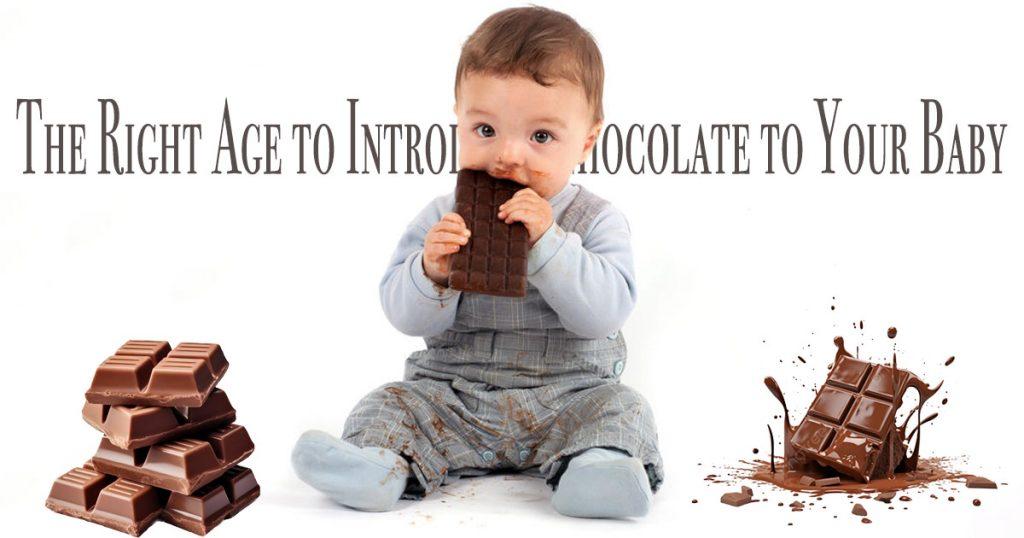Chocolate is a beloved treat for many, but when it comes to introducing it to your baby, timing and health considerations are crucial. As a parent, you want to be sure that every food you introduce is safe and healthy for your child. Check when babies can have chocolate, the potential risks involved, and how to introduce this sweet treat safely.
Chocolate and Its Components
Chocolate is derived from cacao beans and is typically processed with sugar, milk, and various flavorings. The two main types of chocolate are:
- Dark Chocolate: Contains more cacao and less sugar. It is frequently seen as healthier due to its higher antioxidant content.
- Milk Chocolate: It includes milk solids and additional sugar, which makes it sweeter and creamier.
While chocolate can be a delightful treat, it also contains caffeine and theobromine, both of which can affect young children differently than adults.
Understanding Baby’s Dietary Needs
It’s essential to understand your baby’s dietary needs. Babies’ nutritional requirements change as they grow. From birth to six months, infants rely entirely on breast milk or formula. Around six months, you can start introducing solid foods, but these should be nutrient-dense and appropriate for their developmental stage.
When can babies have chocolate?
Most pediatricians recommend waiting until your infant is at least a year old to introduce chocolate. This recommendation is based on several factors:
- Nutritional Value: Chocolate, especially milk chocolate, is high in sugar and fat, which are not ideal for young children. Babies require nutrient-dense diets that help them grow and thrive.
- Allergy Risks: Introducing chocolate too early could increase the risk of allergies. Chocolate contains several ingredients that could potentially cause allergic reactions, such as cocoa and dairy.
- Caffeine Content: Chocolate includes caffeine, however, in smaller levels than coffee. Caffeine is a stimulant that is not recommended for newborns, whose bodies are still developing.
- Additives and Sweeteners: Chocolate, especially milk chocolate, contains high levels of sugar. TheAmerican Heart Association recommends that children aged 2 to 18 consume fewer than 25 grams (approximately 6 tablespoons) of added sugar per day. Introducing chocolate before the age of one can lead to excessive sugar consumption.
By nine months, your baby’s diet may include a variety of solids, but chocolate should still be avoided. At this age, your baby’s digestive system is still maturing, and their body is not yet equipped to handle the ingredients in chocolate. Additionally, chocolate’s sugar content could pose a risk for future dental issues and unhealthy eating habits.
When your baby reaches one year old, they might be ready for a small taste of chocolate. However, it is critical to use it in moderation. Choose dark chocolate with more cocoa content and less sugar. To avoid any unwanted effects, ensure that it is given in very little quantities.
Tips for Introducing Chocolate to Babies
If you decide to introduce chocolate to your one-year-old, here are a few tips to do so safely:
- Start Small: Give your baby a tiny piece of dark chocolate after they turn one. Watch how they react.
- Choose Quality: Pick good-quality chocolate with few added ingredients. Dark chocolate with more cacao is a better choice.
- Monitor Reactions: After giving chocolate, keep a look out for any signs of allergies or stomach upset.
- Teach Moderation: As your child gets older, explain the importance of eating chocolate in moderation and having a balanced diet.
- Make It Fun: Try adding chocolate to healthy recipes, like banana chocolate chip muffins, to make it a tastier and more nutritious treat.
Know the Right Time for Your Babies & Kids to Eat Chocolate
The question of when babies can have chocolate should be approached carefully. It’s better to wait until your infant is at least a year old to introduce chocolate. Even then, give it in. small amounts and choose healthier options. Watch how your child reacts to make sure they’re okay.
Each baby is unique, so what works for one may not work for another. If you have any concerns or questions about adding new foods to your baby’s diet, always check with your pediatrician. By following these tips, you can make sure that introducing chocolate is both safe and enjoyable for your child.
